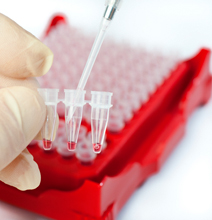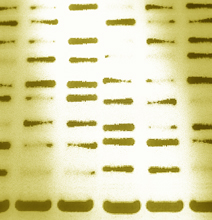Genetic testing- a step-wise approach
The genetic test for colorectal cancer is, in reality, two tests – a diagnostic and a predictive exam – answering very different questions
The diagnostic test purpose is to identify the genetic alteration (the mutation) responsible for the hereditary cancer in that family. Due to its complexity, it needs to be done in a person who has/had the disease to increase its chance of success.
Once the mutation is identified, then a predictive test can then be done on healthy relatives to know if they have inherited it (or not). Therefore, in this case, the test identifies who is at risk of the disease in the future.
While the diagnostic test is vital since it is the only way to identify the origin of cancer in that family, the predictive test is a personal choice.

Because this genetic testing has two stages, it can not be done in families where all relatives with cancer died and left no tumor samples, or are alive but refuse to be tested.
If that is your case, ask your doctor if there are other options.






